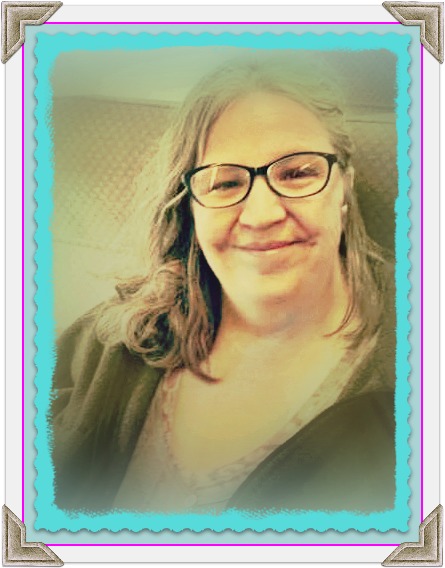 Last week, I walked you through creating character profiles designed to help you get to know your character. But not everyone has the time or desire to write a 10-page profile, so this week I have another suggestion for how you can get to know your characters (and their story).
Last week, I walked you through creating character profiles designed to help you get to know your character. But not everyone has the time or desire to write a 10-page profile, so this week I have another suggestion for how you can get to know your characters (and their story).
Write their resumés.
I know writing a resumé can sound like a drag, but I promise I have more fun writing them for my characters than myself, with all the satisfaction that accompanies finishing this task.
The only tricky part is for authors who are writing stories that don’t exist in our modern, contemporary, tangible Earth sort of world. Being that my own novel is historical fiction, I’m going to show you that it’s possible. I’ll write James’s from the start of the Pequot War, the main external conflict of my novel.
My Protagonist’s Resumé
James Stanworth
Fort Saybrooke
Connecticut
SUMMARY
James is skilled in negotiations and foreign languages. Skills include reading, writing, diplomacy, animal husbandry with an affinity for horses, carpentry, swimming, and archery. With experience as a trapper, trader, and interpreter, James is a natural leader and possesses a growth mindset. He’s an intrepid traveler, having crossed the Atlantic on the Bonaventurein 1633.
OBJECTIVE
To become an interpreter for the colonies of New England, to continue developing deeper knowledge of both the languages and cultures of First Nations within those colonies and foster a mutually beneficial relationship between settlers and First Nations. To own and run a trading post.
EMPLOYMENT EXPERIENCE
Assistant Trapper and Trader to Jasper Peterson, The New World, 1633-1635
- Learned Iroquois and Algonquin tongues
- Hunted both deer and beaver
- Carved a canoe out of a cedar trunk
- Traded with First Nations and other settlers
Contract Negotiator, Colony of Connecticut, 1635-1637
- Negotiated land deals between Governor John Winthrop Jr. of Connecticut and First Nations
- Translated contract documents from English into Algonquin languages
Interpreter, Fort Saybrooke, 1637-Present
- Negotiates on behalf of Lieutenant Lionel Abner
- Reports regularly to Governor John Winthrop Jr. about progress in preventing war between First Nations and settlers
- Liaises with Dutch military allies and trade competitors
Discussion
James was not formally educated for reasons that will be revealed in my book, even though he comes from a wealthy family. But his father did impart him with the skills to read and write, which serve him well throughout the book and become some of his most relied-upon abilities. However, because he didn’t go away to school, I chose to omit an “EDUCATION” section.
But you can see how I’ve brought this 17th-century character into the modern world. I kept the dates of his employment honest to his time, but obviously he wouldn’t fill out a resumé. If I truly wanted to be as close to accurate as possible, he might have a referral letter from a previous employer—maybe Jasper Peterson (this name might change, by the way—I haven’t decided yet).
There are also some areas where I brought James’s personality through. He prefers hanging out with horses to hanging out with people, and he doesn’t like the Dutch all that much—but then, as a tradesman from England at a time when England will soon be at war with the Dutch, that’s not that hard to imagine. My point though is that you can bring your character to life through your choices in wording elements of their resume.
By the way, this exercise only took me about twenty minutes, which makes it a great pre-writing exercise.
As a bonus exercise, you can write a scene with your character interviewing for a job!
 Margaret McNellis has been volunteering with JuNoWriMo for years. She holds an MA in English & Creative Writing and is currently pursuing her MFA in Fiction. Her WIP is a historical novel set in the 17th century. Margaret’s short fiction has appeared in Fictitious Magazine, See Spot Run, The Penman Review, The Copperfield Review, and Dual Coast Magazine. To check out some of her fiction and poetry, visit her website. You can also connect with her on Twitter.
Margaret McNellis has been volunteering with JuNoWriMo for years. She holds an MA in English & Creative Writing and is currently pursuing her MFA in Fiction. Her WIP is a historical novel set in the 17th century. Margaret’s short fiction has appeared in Fictitious Magazine, See Spot Run, The Penman Review, The Copperfield Review, and Dual Coast Magazine. To check out some of her fiction and poetry, visit her website. You can also connect with her on Twitter.

 You’ve decided to write a novel…now what? Whether or not you intend to do some planning this month before JuNoWriMo kicks off, I’m going to help you start to think about ways to develop characters. It doesn’t matter if you’re a novice or seasoned writer—thinking about characters in new or different ways can energize the development task and get you revved up to bring them to life come June.
You’ve decided to write a novel…now what? Whether or not you intend to do some planning this month before JuNoWriMo kicks off, I’m going to help you start to think about ways to develop characters. It doesn’t matter if you’re a novice or seasoned writer—thinking about characters in new or different ways can energize the development task and get you revved up to bring them to life come June. For years, I thought that creative people had been blessed with a special gene. That they were
For years, I thought that creative people had been blessed with a special gene. That they were  You made it to week three! Woot woot! You’re over the hump, and it’s all downhill from here, and ha ha ha ha I can’t even finish that sentence.
You made it to week three! Woot woot! You’re over the hump, and it’s all downhill from here, and ha ha ha ha I can’t even finish that sentence. Dan Wells writes a little bit of everything, but he is best known for the
Dan Wells writes a little bit of everything, but he is best known for the 




 I don’t believe in happy endings, because that’s not how life really works. I’m a strong believer in growth, change, and better choices, and those will be major focuses of this novel. I tend to leave my characters in a better place than they began from, but it’s seldom a perfect place.
I don’t believe in happy endings, because that’s not how life really works. I’m a strong believer in growth, change, and better choices, and those will be major focuses of this novel. I tend to leave my characters in a better place than they began from, but it’s seldom a perfect place.